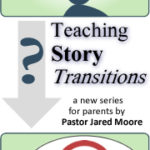Sending The Wrong Message
What message should Christians be spreading during a time of pandemic, when much of the world seems to be in semi-quarantine? A couple weeks ago I addressed this issue in the article “Speak Lord, For Your Servant Is Listening.” Since then, I’ve heard a number of Christian leaders speak to the topic.
I’ve been pleased with some, disappointed in others, and surprised at those who have remained silent.
The latter shouldn’t surprise me, really. They are the preachers who push the health and wealth message. What can they say when Christians actually do come down with the virus? What can they say in response to the social distancing policies designed to limit the spread of the virus? No, we don’t have to do that because we have God’s promise of health and wealth? There are serious Biblical problems with that position, and of course we know that all of us, Christians included, will one day die. So apparently God isn’t keeping His promise, if we read into the Bible that idea. So, silence. What message can they give their friends and neighbors when Christians like everyone else can contract Covid-19 and can be carriers of the virus?
 The first group of leaders who have turned to the Bible and are addressing today’s circumstances in light of what the Bible says, seem to me to be seizing the opportunity. People who are afraid or who feel like they’re losing control, who were counting on a job that disappeared over night, who no longer have the comfortable retirement package they once had, need to hear what God says about crisis and about how he works through trials and suffering, how He is sovereign and will not leave or forsake His children. That’s the message those leaders have delivered.
The first group of leaders who have turned to the Bible and are addressing today’s circumstances in light of what the Bible says, seem to me to be seizing the opportunity. People who are afraid or who feel like they’re losing control, who were counting on a job that disappeared over night, who no longer have the comfortable retirement package they once had, need to hear what God says about crisis and about how he works through trials and suffering, how He is sovereign and will not leave or forsake His children. That’s the message those leaders have delivered.
Another group of Christians who have a media presence have given a non-message as their response: God isn’t doing anything different today than He did in years gone by; it’s not up to us to take the events of today as particularly meaningful. Here’s one example:
No doubt the usual silly suspects will tell us why God is doing this to us. A punishment? A warning? A sign? These are knee-jerk would-be Christian reactions in a culture which, generations back, embraced rationalism: everything must have an explanation. But supposing it doesn’t? Supposing real human wisdom doesn’t mean being able to string together some dodgy speculations and say, “So that’s all right then?” What if, after all, there are moments such as T. S. Eliot recognized in the early 1940s, when the only advice is to wait without hope, because we’d be hoping for the wrong thing? (“Christianity Offers No Answers About the Coronavirus. It’s Not Supposed To”)
In response to that article, another leader offered a Biblical counterpoint:
Christian hope is radically different [from the hope the world enjoys], because Christianity is different from every other religion. Why? Because it’s eternally founded on the prophetic words of God, revealed to prophets who wrote down what God said about the future. The God of the Bible is eternal, infinitely above the unfolding of time. He is the “Alpha and the Omega, the First and the Last, the Beginning and the End” (Rev. 22:13). He wrote the complex story of human history before the world began. And he has revealed everything we need to know about the future. (“Surprised By Hopelessness”)
Another leader who gives a message of repentance and hope, John Piper, has written a book on the subject, Coronavirus And Christ (audio book available for free; also available for purchase in various platforms). He not only addresses hope for believers but also the need for repentance.
As I see it, the message of no purpose and hopelessness is the wrong message. I don’t believe God wastes any opportunity to draw people to Himself. More and more, people around the world are asking what God’s doing in and through this pandemic. As places begin to move back toward opening businesses, toward a bit of normalcy, the window is also beginning to close when Christians can spread the Biblical message of repentance and hope to people who have come face to face with their mortality. May many more leaders follow those who are doing so, and not those who are giving the wrong message.












































I’d be happier if there weren’t a substantial number of kook pastors who encourage breaking social distance because “religious freedom.” It does seem like the nuttier ones who buy into the conspiracy theories seem to be the same ones that drop dead later from the virus. Who’da thunk
“Religious freedom” set apart in scare quotes. Who’da thunk
?? I can’t tell in what way you’re being sarcastic.
I think the vast majority of pastors, whether believers in conspiracies or not, are following social distancing guidelines and stay-at-home orders. (More complain about the orders than disobey them.)
I don’t have percentages on this–getting such stats would be tough–but I think there’s little to worry about in terms of massive numbers of pastors telling people to ignore guidelines. That’s true in spite of some breathless reporting about the tiny number of congregations ignoring the rules. (Cause some people are paranoid about “kook pastors.”)
FYI.
Granted, I’m doing a bias because I think more than like 2 kook pastors like that is substantial enough to be off-putting.
Somewhere on the internet someone dubbed them “Branch Covidians” and I like that one.
Kenneth Copeland, one of the heath, wealth and prosperity gurus, did in fact speak on this topic. In the name of the Lord, he declared he had defeated the virus and blew it away (with a literal huff of breath). And said it would have no more power.
According to the Old Testament law, he should be put to death for speaking a prophecy in the name of the LORD that doesn’t come true, but I think his followers will find a way to avoid it being his fault. (And that law isn’t in effect anymore, of course…)
Just bringing this up as a fact-check sorta thing. You said the health/wealth types have been silent–but not all have been…
Thanks for that info, Travis. I was relying on a source that may have spoken before Copeland made his declaration. I almost wish he had not. Like N. T. Wright, he might, in his own way, be doing more damage through his wrong message.
Becky
My take of N.T. Wright’s article was perhaps a little different from others’. I thought he was speaking more about the pastors/speakers/teachers who are quick to rush with the “answer’ – God is doing this because [fill in your favorite answer] As if God needs them to inform the world that they know exactly why things are happening. And as if they (and they alone?) had a direct line to God. Job & his ‘friends’ should make it clear that that’s not so!
Here’s a podcast episode from Phil Vischer (creator of VeggieTales) and some of his friends. I don’t entirely agree with everything they said, but it starts out funny then has a good discussion that raises some good points:
Viruses are part of nature that operates like nature does. We’ve had worse diseases in the past and will have worse ones in the future, but kudos to Piper for jumping on a ready-made market. Not a fan of Piper. Does it show?
Ah. The good old Watchmaker treatment of God. But, Jill, I don’t think this view squares with Scripture. God did all kinds of things in the Bible, working through “natural” events, in order to warn, correct, reveal His plan, purpose and Himself. See, for example, the number of times His word says, “That they may know that I am the LORD . . .” The Bible also says God is the same yesterday, today, and forever, so why should we think He has stopped using natural events today and will only work in the supernatural (which many people think only existed for a time and have now ceased—I question that idea, too!)
Becky